What a signed banknote tells us about Myanmar's next leadership
- Published
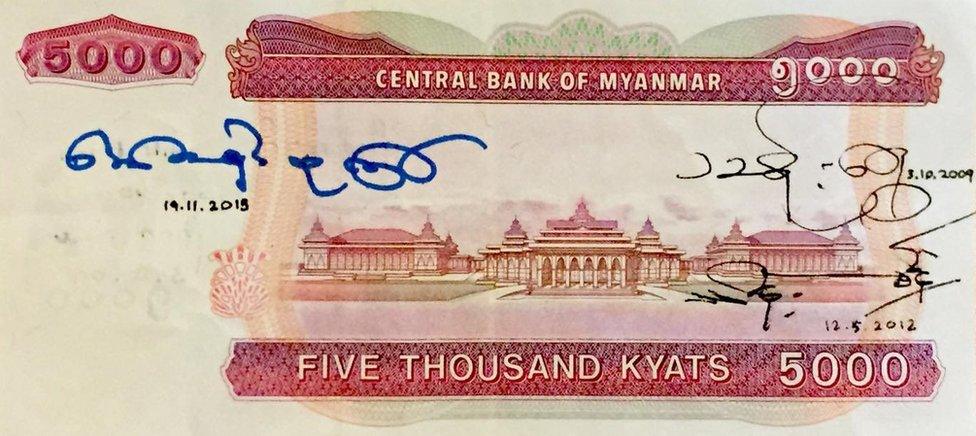
The banknote was signed by Aung San Suu Kyi, former dictator Than Shwe and current president Thein Sein
The crimson banknote is worth 5,000 kyats ($4; £2.60) but it could turn out to be priceless.
Signed by the three most important figures in Myanmar's recent history, it's being seen by some as a sign that a deal is being struck between Aung San Suu Kyi and her long time adversaries in the Burmese military.
Since first being made public on Facebook on Saturday night, a picture of the money has gone viral on Burmese social media. It was uploaded by a young man called Nay Shwe Thway Aung.
For the last few weeks he has been acting as an intermediary between Aung San Suu Kyi and his grandfather, one of Myanmar's most notorious and controversial leaders - the former dictator Than Shwe.
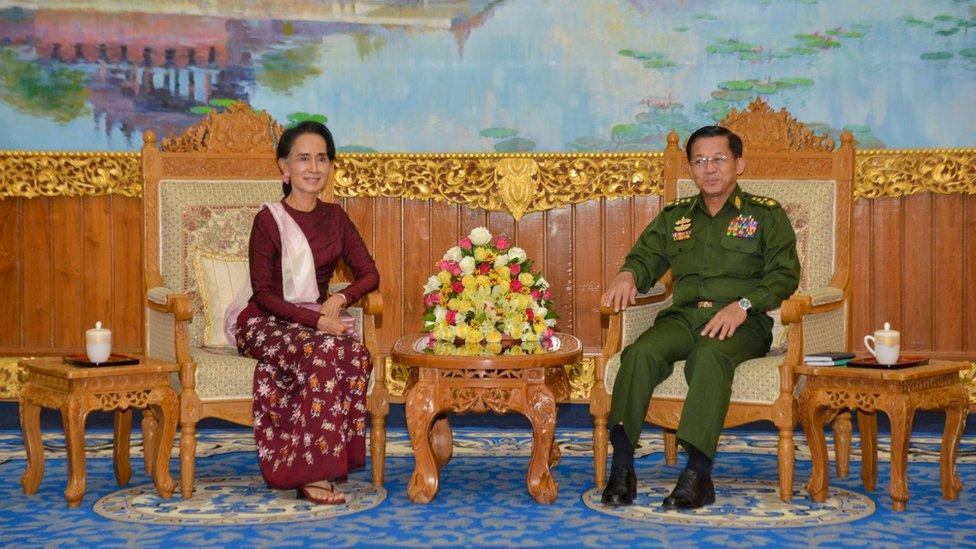
Aung San Suu Kyi met the military's commander in chief last week, but for less time than she spent with Than Shwe
Bleak decades
Than Shwe ruled Myanmar with an iron fist between 1992 and 2011.
They are remembered as some of Myanmar's bleakest years, with harsh internal repression coupled with international isolation. Aung San Suu Kyi, spent most of it cut off from the world, under house arrest.
Then four-and-a-half years ago Than Shwe retired from politics. He stepped back from public view but few believe he truly let go. Though he's now 82 there are many who believe he still makes all the major decisions.
So on Friday, amidst much cloak and dagger, Aung San Suu Kyi met Than Shwe at his house in the capital Naypyitaw. The only account we have of that meeting is from the man who organised it, Nay Shwe Thway Aung.

One person wrote on Nay Shwe Thway Aung's Facebook page that he should get a Nobel Peace Prize for his efforts
On his Facebook page he said that the meeting had lasted two-and-a-half hours, a clear sign that discussions went beyond pleasantries.
By way of comparison, Ms Suu Kyi last week met separately with President Thein Sein and the Commander in Chief of the Army Min Aung Hlaing. On paper they are Myanmar's two most powerful men, but neither discussion lasted more than an hour. Perhaps Than Shwe was the main event.
'No hatred'
Nay Shwe Thway Aung said after the meeting the participants agreed to release two short comments for him to publish on Facebook.
Ms Suu Kyi played a straight bat. She was quoted saying she had no feelings of revenge or hatred and had wanted to meet with Than Shwe to discuss working with the military to build a successful Myanmar.
Than Shwe's comments are more intriguing. Remember, this is a former dictator meeting with a woman he has spent decades detaining and trying to thwart.
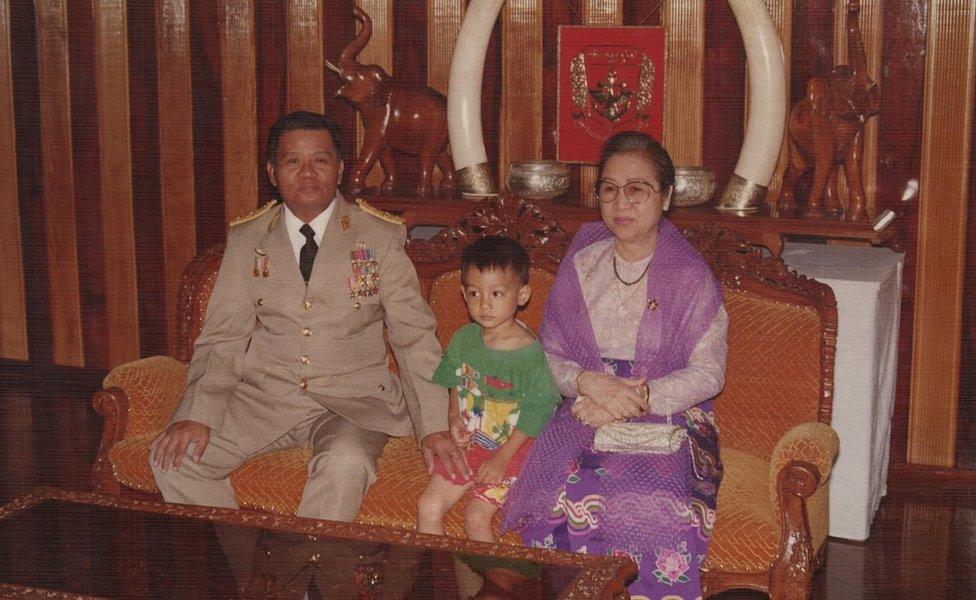
Grandfather and grandson in bleaker times - for the country, if not the erstwhile dictator
"It is the truth that she will become the future leader of the country after winning the election," Than Shwe said. "I will support her with all of my efforts if she works for the development of this country."
Two phrases stuck out. What did he mean by "future leader" and what sort of "support" might he have in mind?
Than Shwe could of course just have been using "leader" in the same way as Ms Suu Kyi has been using it of late. She has been stressing that though the constitution bars her from becoming president, because her sons are British, she will still effectively "lead" the government and will consider herself an authority "above" the president.
Constitutional contortions
But the choice of words encourages speculation that an improbable deal might still be on the cards. Might Than Shwe "support" an agreement to allow Ms Suu Kyi to become president in February 2016.
It would certainly need some constitutional contortions, but if there was the will amongst the Burmese military, a way would almost certainly be found.
It is notable that amongst army ranks there has been no attempt to pretend that the electoral landslide on 8 November was anything other than a ringing personal endorsement for Ms Suu Kyi to lead.
"Now that people have selected a person who they think can fulfil their needs, the next thing is for the elected person to fulfil their desires," the current army Commander in Chief Min Aung Hlaing told the Washington Post, external two weeks ago.
A few have suggested that the offending clause, 59F, might somehow be waived to avoid the constitutional dog's dinner that Ms Suu Kyi is threatening.
In the cold light of day it still feels the longest of long shots. Myanmar's military leaders, with Than Shwe first among them, have spent the last 25 years trying to restrict Ms Suu Kyi's freedom and political power. Are they really willing to bend their rules for her now? Could the election really have changed everything?
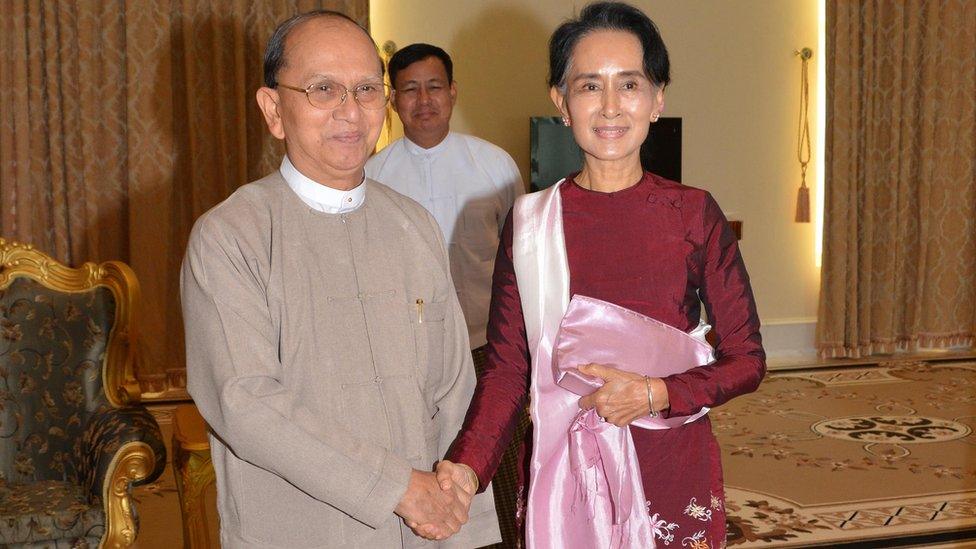
Although Thein Sein (left) is president, some observers suspect former leader Than Shwe has a hand in the major decisions
Banknote hint
So back to the banknote. Posted to Facebook by Nay Shwe Thway Aung on Saturday night, it contains the signatures of Than Shwe from 2009, the current President Thein Sein from 2012, and Aung San Suu Kyi from when she met with him on 19 November.
According to Nay Shwe Thway Aung, the signatures were gathered either when the person was Myanmar's leader or on their way to becoming leader.
The symbolism is clear - Than Shwe to Thein Sein to Aung San Suu Kyi - a line of succession that few thought possible.
Underneath the picture of the banknote are more than a thousand comments lauding Nay Shwe Thway Aung for his efforts. One even suggests a Nobel Peace Prize might be in order.
Ms Suu Kyi and her party, the National League for Democracy (NLD), have so far refused to comment in any detail on the ongoing negotiations. But it is a measure of how far she has come, that the discussion is no longer whether the former political prisoner is going to lead the next government, but precisely how.
The campaign to win Myanmar's election was very public. The battle to win the military over is taking place very much in secret.
With information scarce, the Burmese public are clinging to every hint that emerges, even if it is written on the back of a banknote.
- Published6 December 2015
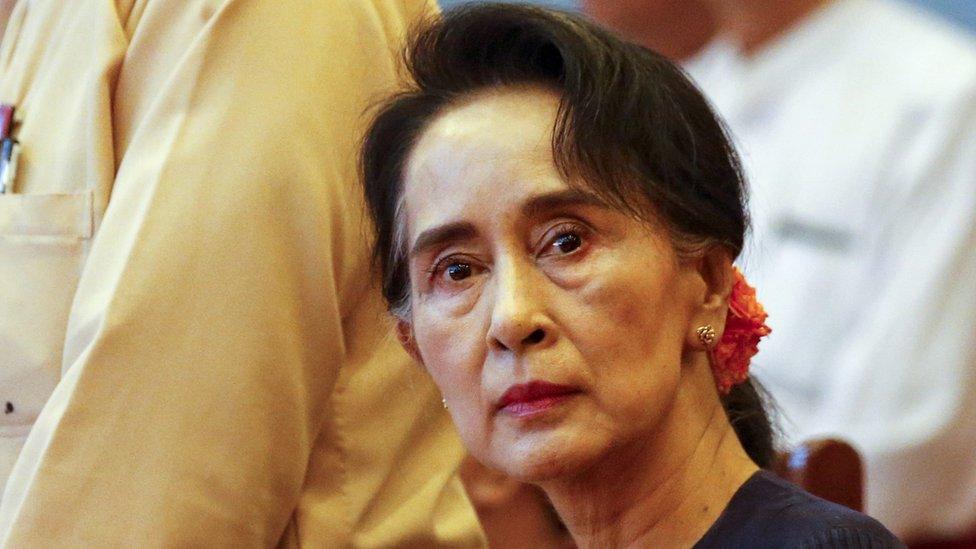
- Published3 December 2015
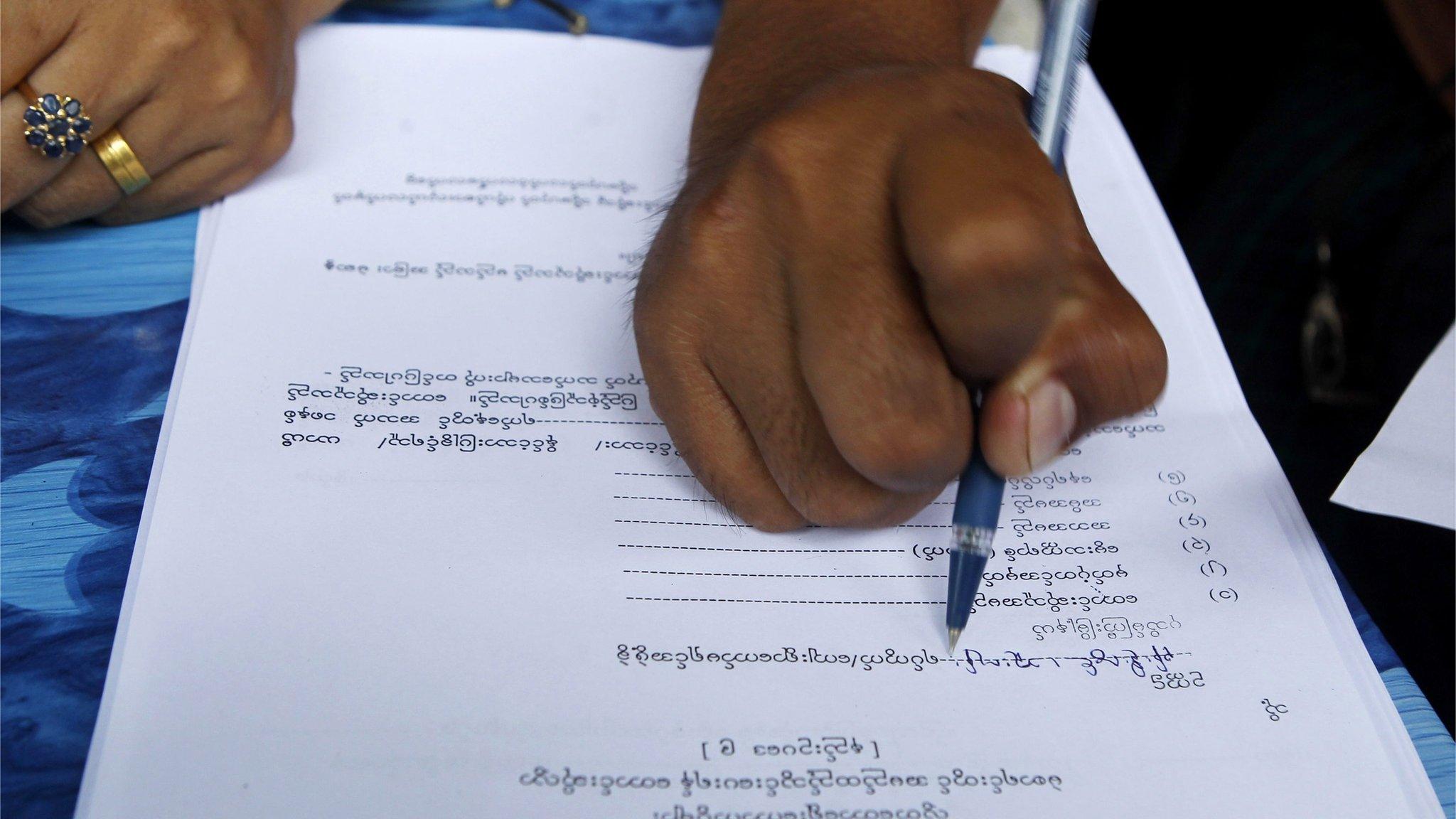
- Published10 November 2014
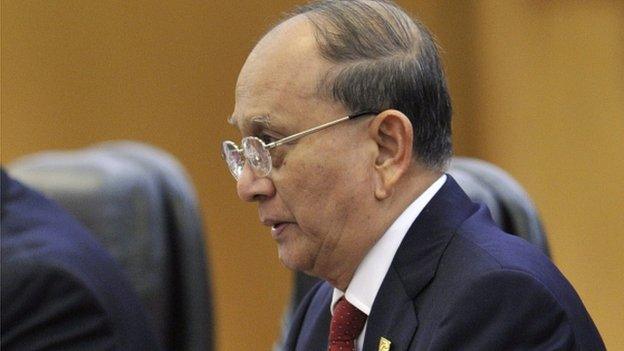
- Published6 December 2021
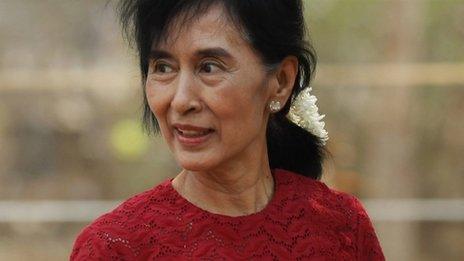
- Published27 August 2015